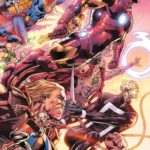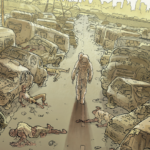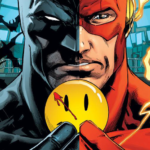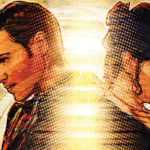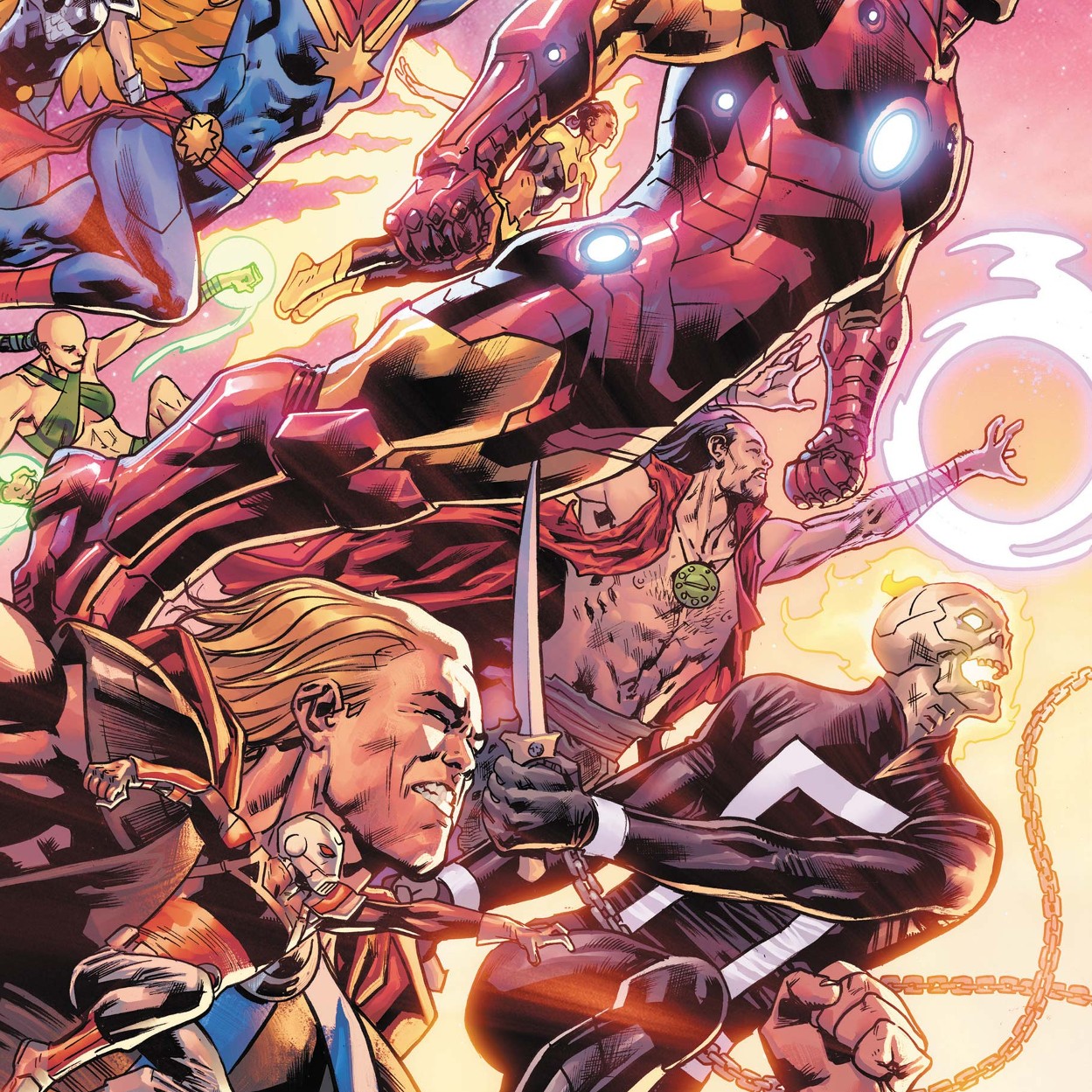
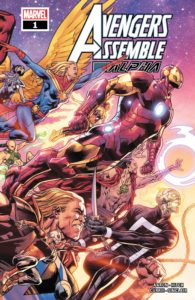 Earth’s Mightiest Heroes past, present, and future collide in Avengers Assemble #1, the beginning of the end of Jason Aaron’s Avengers saga.
Earth’s Mightiest Heroes past, present, and future collide in Avengers Assemble #1, the beginning of the end of Jason Aaron’s Avengers saga.
With how difficult it is nowadays for creators to be given the time and space to develop sprawling sagas in established fictional universes, it’s always notable when someone is able to do exactly what they want for exactly as long as they want to. Jason Aaron has been at the helm of the core Avengers title for close to five years now, and he’s certainly done a lot with that time. (See: the new Phoenix, a quasi-sequel to Heroes Reborn, the multiversal Avengers Forever…) Avengers Assemble #1 is the opening chapter of his final act with the team, and you can’t say he’s not going out guns blazing.
If you haven’t kept up with Aaron’s Avengers, all you really need to know is that two main antagonistic groups —Doom Supreme’s Multiversal Masters of Evil, and Mephisto’s Council of Red— have been plotting to reboot the multiverse in their image, and this plan requires them to eliminate the prehistoric Avengers of 1,000,000 BC. Why them? Simply put, they’re the nexus point of the entire Marvel multiverse (the “big bang” that exploded the universe and every branching timeline with superpowers) and with them gone, the bad guys can change every timeline to suit their whims. If there’s ever been a time for the Avengers to assemble — Avengers from every timeline and point in history.
It’s hard to get into this final Aaron story and not compare it to his predecessor Jonathan Hickman’s own Avengers saga, which culminated in 2015’s epic Secret Wars. Like that one event, Avengers Assemble invokes the multiverse as a major plot element, involves Doctor Doom in a main antagonistic role, and forces characters from various timelines to come together to save the universe. Despite the grand stakes of Avenger Assemble, though, it somehow feels smaller and less urgent than Secret Wars did. That’s not necessarily a bad thing, but it does come off as somewhat underwhelming as a result, especially when this one-shot spends most of its pages with the heroes fighting one another in a classic good versus good misunderstanding that ends once the actual villains arrive.
Part of what made Secret Wars work so well was the lack of requisite violence —though there was still plenty of it to go around— in favor of existential discussions about who gets to rule the world and whether or not its citizens should accept it. Hickman’s dimensional take on Doom also anchored the thing with some sort of emotional and narrative reality, whereas the villain factions of Avengers Assemble mostly just feel like mustache-twiddling goons who will eventually be overpowered. We all know the heroes won’t lose, so the suspense needs to come from a place of making us wonder how they’ll do it, and I’m just not that interested or invested in wondering how that’ll happen when their adversaries are not especially compelling. This issue is also left wanting for a lack of levity, providing some fun character moments (but not nearly enough)between the old and new guards when they’re not fighting one another for plot reasons. Maybe that’ll change as it progresses. A similar uninspiredness is seen in Bryan Hitch’s art, which is stalwart and solid as ever, but not especially exciting. (Not to make everything about Secret Wars, but you really can’t beat Esad Ribić’s incredible art in that series.) If this storyline is meant to conclude Aaron’s long tenure with these iconic characters, it’s gonna have to do something a bit more interesting and unique to stand out in the broader Avengers pantheon of stories.

